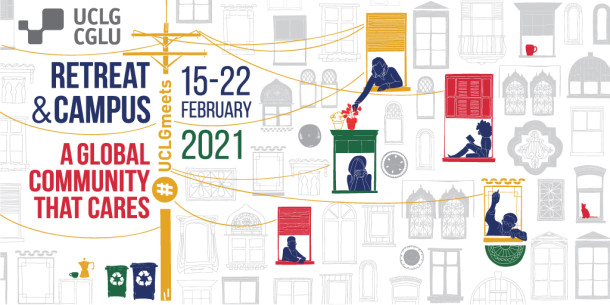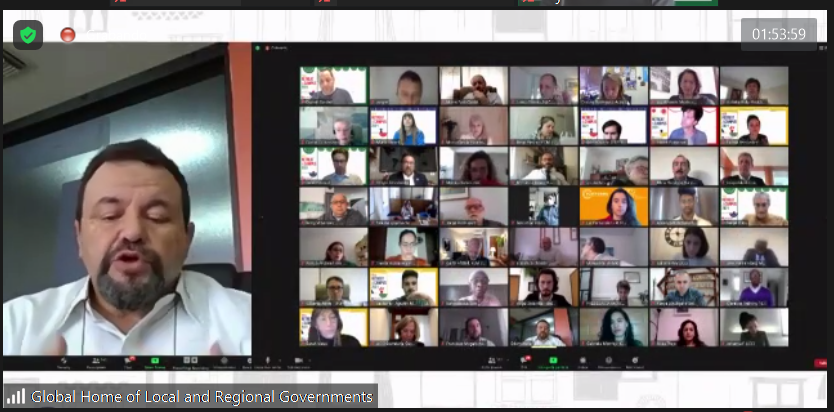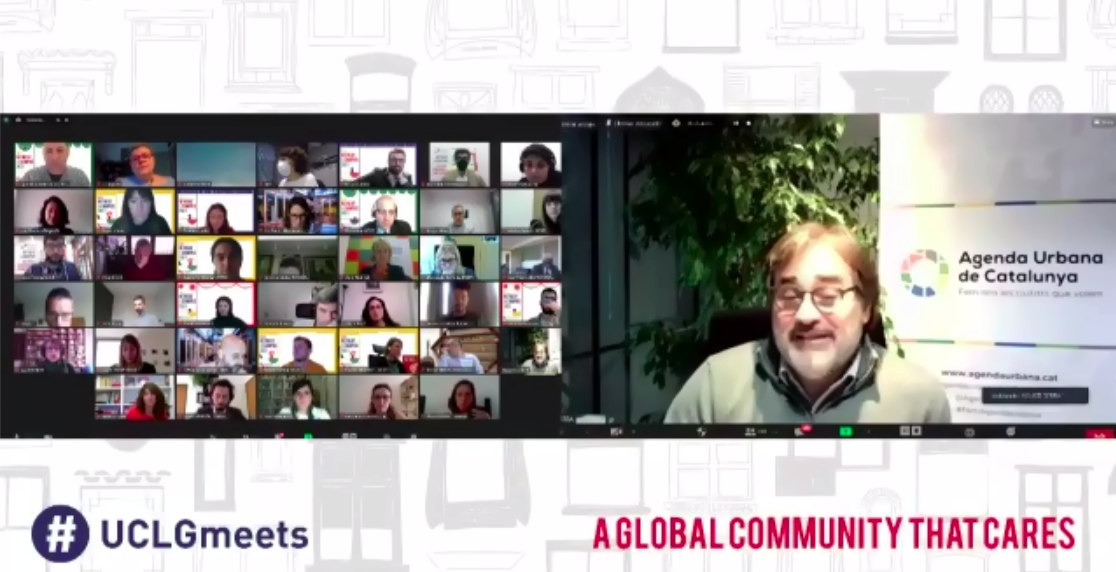
Bringing a metropolitan governance perspective to the UCLG Retreat & Campus debates
The 7th edition of the UCLG Retreat & Campus was held on 15-22 February 2021 and attended by more than 600 participants. Under the slogan “A Global Community that Cares”, this year’s Retreat—a virtual get-together of all the members of the United Cities and Local Governments (UCLG) Secretariats—focused on how to capitalise on the window of opportunity left in the wake of the pandemic. As the metropolitan section of the network, Metropolis actively participated in a wide range of discussions throughout the week, offering our perspective on governance as a strategy for a better future.

The current crisis has shone a light on the need to promote multi-level coordination mechanisms to respond to the complex challenges faced by our cities and metropolitan areas. Edwin Miño, Executive Director of the Consortium of Provincial Autonomous Governments of Ecuador (CONGOPE), explained how they are paying close attention to multi-level governance at a regional level.

“We must work to ensure that our discourse is not exclusively theoretical”, Agustí Serra, Secretary for the Urban Agenda of Catalonia, reminded us. “The Covid-19 crisis represents a new opportunity in the relationship between metropolises and regions. It allows us to imagine a new development model”, added Frédéric Vallier, CEMR Secretary General.
“Whether they are municipalities, regional governments or metropolitan authorities, what brings us together is the governance of these regions—large urban areas”, Octavi de la Varga
During the Retreat, Metropolis Secretary General Octavi de la Varga stressed that, at Metropolis, we use the term “metropolitan spaces”, because our members include a range of local government institutions: “Whether they are municipalities, regional governments or metropolitan authorities, what brings us together is the governance of these regions—large urban areas.”

De la Varga explained the four key challenges facing metropolitan governance: urban growth and social inequality, the resilience of metropolitan spaces from a social, economic and environmental perspective, digital disruption and the digital divide, and the legitimacy of public governance. “Metropolitan spaces are disruptive because they are areas in which local and regional governments overlap”, he pointed out.
Inequality was also a central part of the debate during the week's meetings. “This is a time for dialogue and the search for complementarities to address issues of inequality”, explained Djamel Sandid, from the Committee on Peripheral Cities.
“Care is linked to the burden of care that has historically been placed on women. This burden must be lifted from women for them to be able to enter the labour market”, Luz Amparo Medina
Luz Amparo Medina, Director of International Relations in Bogotá, underlined that care is a core issue that must be expressed in rights and overcoming inequalities: “Care is linked to the burden of care that has historically been placed on women. This burden must be lifted from women for them to be able to enter the labour market. In the management of the pandemic, culture is also a question of care.” In the words of Enrique Avogadro, Minister of Culture for the City of Buenos Aires: “Culture must be kept open to connect with the riches that culture provides.”
"Access to public services is not a question of privilege, it is a question of rights”, Mariana Flores
In addition, Mariana Flores, Executive Director of Institutional Representation, General Coordination of Advisors and International Affairs at the Mexico City Government, reminded us that “access to public services is not a question of privilege, it is a question of rights.” “Inequality is no longer an option. We can’t make trade-offs”, concluded UCLG Secretary General, Emilia Saiz.
Finally, the above-mentioned multi-level coordination should be carried out between governments, as well as across regions and municipalities. In order to promote multi-level coordination mechanisms to respond to the complex challenges facing our cities, we urgently need to accompany these processes with financing mechanisms and the capacity to implement them. As Serge Allou from UCLG explained, the financial problems in local and regional governments as a result of Covid-19 is not only a matter of resources, but also a lack of internal capacities.
It is a difficult task to summarise all the constructive discussions held over the event in just one article, but one conclusion is clear: the need to connect regions, governments and communities.

